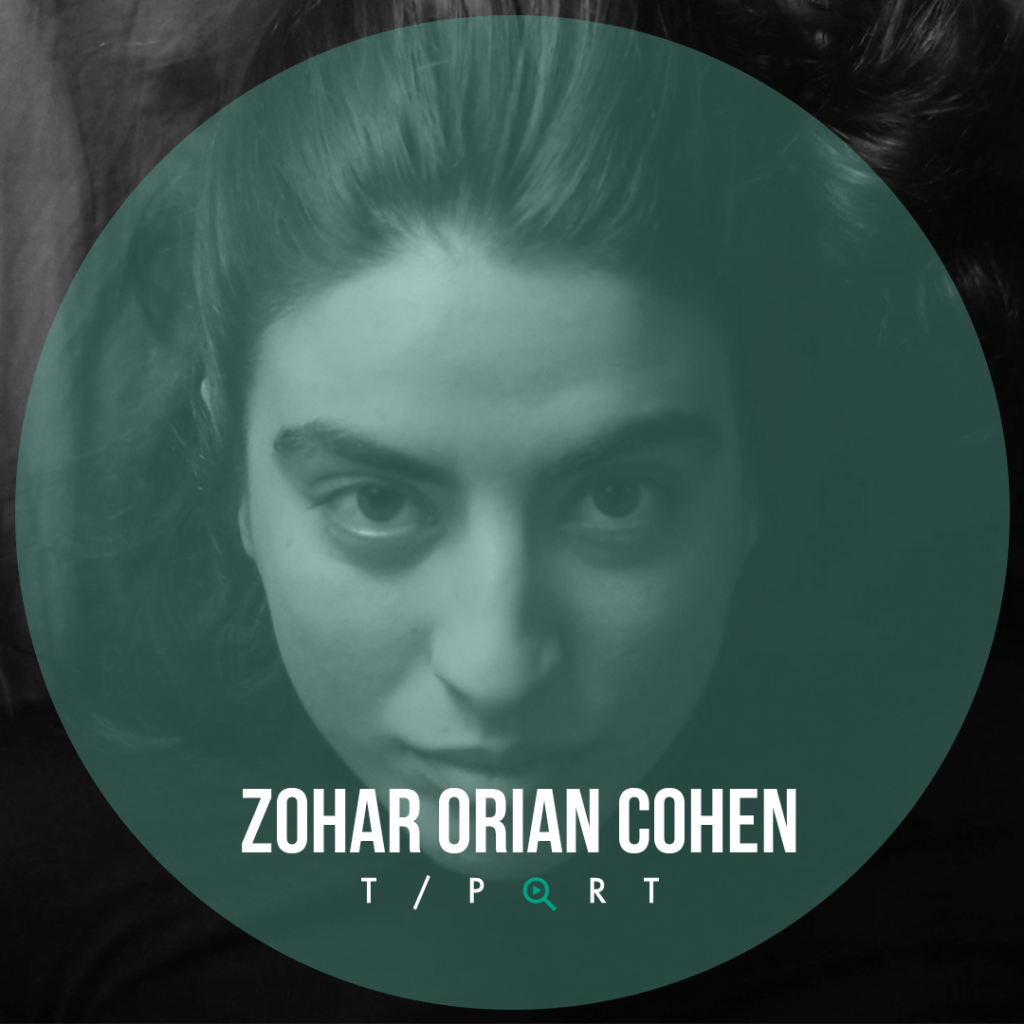
Israeli documentarian Zohar Orian Cohen describes herself as someone who seeks truth and justice, and it was in this spirit she turned the camera upon herself for her student film, created through the School of Audio and Visual Arts, Sapir College (Sderot, IL): SHEMEI KLAMI / / LISTEN TO WHAT I SAY (LISTEN TO MY VOICE), which documents her attempts to rebuild a relationship with her mother.
The film, which is part of the 2023 T-Port Lighthouse Selections, was picked by Maike Mia Höhne. We chatted to the filmmaker to find out more about what inspires her, as well as her dreams for the future.
Hi Zohar Orian! Would you introduce yourself in a few lines?
I’m an 29-year old Israeli female director growing up on the outskirts of the city of Haifa. I was born to a traditional Jewish family of Tunisian origin. In 2022, I graduated from School of Audio and Visual Arts, Sapir College in South Israel.
I think I’ve become a filmmaker because of some conscious commitment to creating artistic content that will prompt reflection and social dialogue.
I believe in cinema that comes from life, from the existing. My biggest professional dream is to make documentaries. Pure documentation, documents of time and place. The direction to which my gaze is diverted and somehow these are always places that don’t tend to looked at. I find my interest in genuine people on the margins of society and the grace that emerges from their reality.
I am most interested in people, their souls, their history, the culture they came from and where they grew up, their memories, the set of factors, events and reasons that shaped them and made them who and what they are.
I wish to touch these individuals and places with love and sensitivity, and make those who are forgotten, deserve attention and be listened to carefully and respectfully.
I am of the opinion that you cannot hate any person you have made research on. I have many examples from people I met for research interviews and I probably arrived, as in any personal interaction, with thoughts and prejudices that simply became a puzzle over time.
Research is emotion and if you hate someone you did research on – you didn’t do good research.
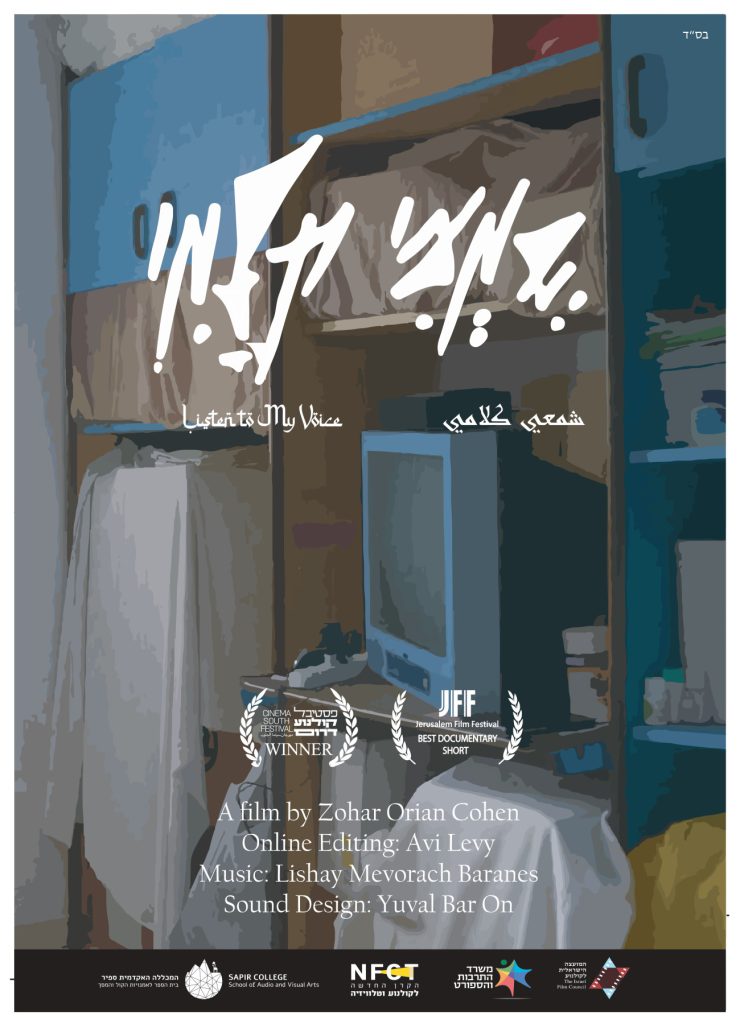
While working on the film, where did you draw your inspiration from?
While working on the film, I read Galit Distel Atbaryan’s book, “Peacock In The Stairwell” and it inspired me a lot. In cinema, I’m inspired by films of Tony Gatlif, Benny Toraty, Yamin Messika and Efrat Corem who was also my mentor at Sapir College.
Next to filmmaking, what do you consider as your passions in life?
If I hadn’t gone to study cinema, I probably would have chosen to study history, anthropology or sociology.
I’m about to start my MA Degree studies in the Department of Jewish History and Contemporary Jewry in the Hebrew University, focusing on Sephardic Jews.
I’m also intrigued by the bible and the Talmud so I definitely harbour a dream of deepening my knowledge in these areas. I think that gaining historical knowledge is the best property a person can have. Especially as a Jew, I think it’s even crucial when it comes to my own people.
Another dream I have is writing. I dream of writing a book. I used to write a lot as a child and as a teenager. Ever since I remember myself, I was looking for truth and for justice. My ideas and stories often deal with this need of justice and aspiration for truth. Somehow with the crazy leap in technological development that has occurred in recent years, I left the pen and paper but while working on the film, I did have bursts of ideas that I wrote down in a hasty shorthand.
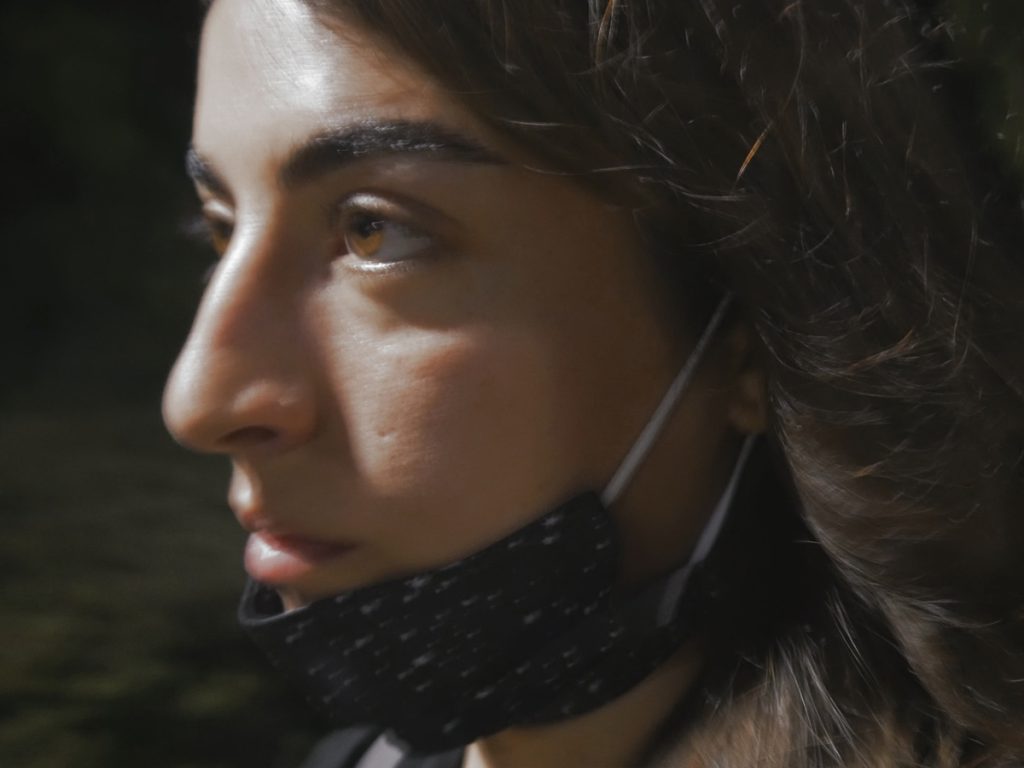
Do these passions influence your filmmaking, are there any connections?
Of course. I put a lot of effort in research and in getting to know as much as possible the person and place I’m going to film even before the first time I’m turning on the camera. I’m willing to get acquainted with the history and sociological aspects of the people and places that fascinate me.
How did you first start working on this film? What was the process like and what first sparked the idea to make it?
In the course of my film studies, I made a fiction short film called “Nuts” about a relationship between a 15-year-old girl and her mother living on their own. It took place at my childhood house and was inspired by real events during a summer vacation from boarding school that I spent at home. So the desire to deal with my family issues was there from day one. I think I had to go through this process of making a fiction short film before I put my real mother in front of the camera lens and myself inside the frame.
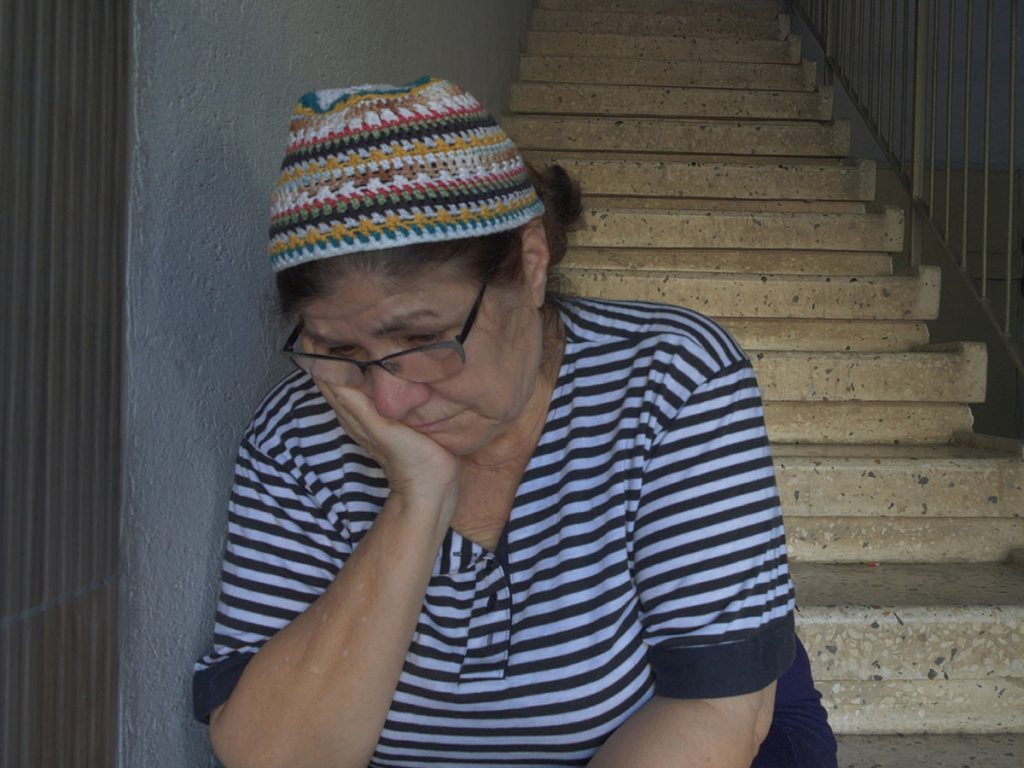
Tell us a bit about your film and the filmmaking process – what did it take to make your film?
The process was long and quite difficult. I live in South Israel and my mother lives in North Israel and just as I tried to get closer, reality made me think it over again. COVID-19 broke out as I started working on the film and Israel was for quarantines and traffic restrictions. The entire part of research and questioning was online via WhatsApp video calls. I’d go on a shooting day each time I could. Eventually everything turned out well and some of this virtual material’s edited in the film.
What were the biggest challenges you encountered during making your film?
My biggest challenge was adopting a new way of looking at my mother and our family story which I only considered to be my own story and during making my film, I got to know other sides and parts too. Another challenge was making my mother confide in me to protect her and respect her as a character. She was very suspicious at the beginning and not only then, and was afraid I’ll make her seem as a “bad mother”.
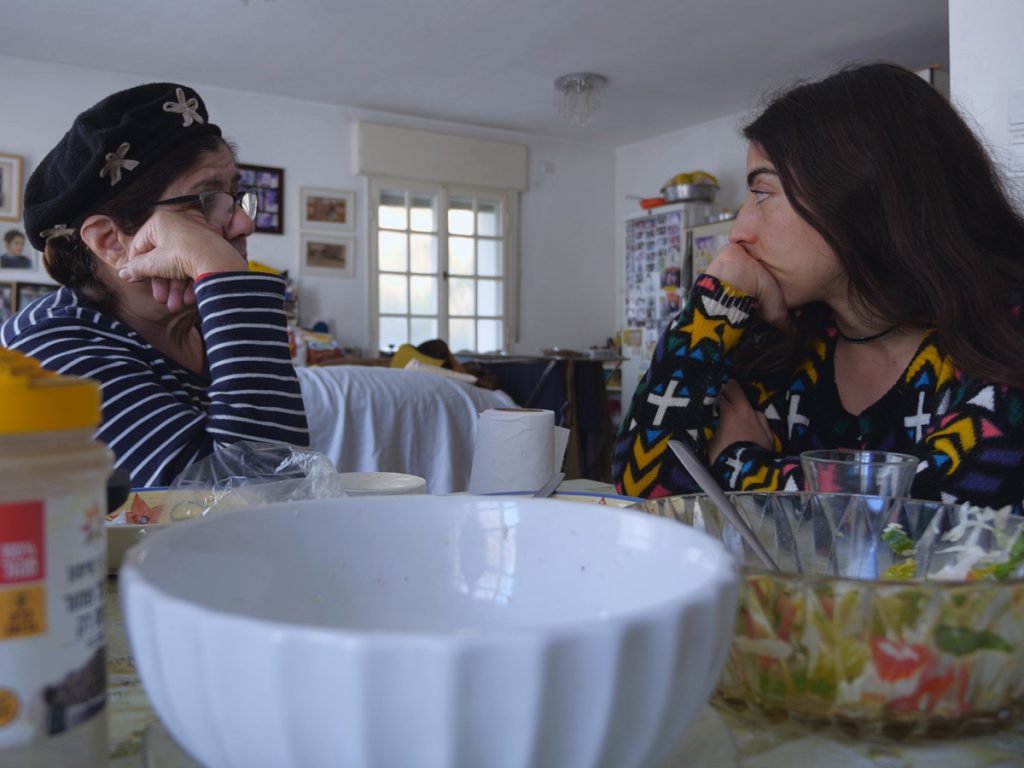
Tell us about the sound choices in your film – what type of score did you use and why? What other types of sounds did you use?
I’ve made the sound choices together with the sound designer Yuval Bar On and the music composer Lishay Baranes. We used electronic drone to make a scene feel disturbing and at the end of the film, used Harmonium which is an acoustic tool whose sound is warm and minimalist.
Tell us about the visual choices in your film. What were your main goals and techniques in creating the visual style of your film?
My visual choices drove from my wish to be close and local. The main theme is the room. The story and dialogues that are taking place in this location could take place in any other room at any other house and they do indeed.
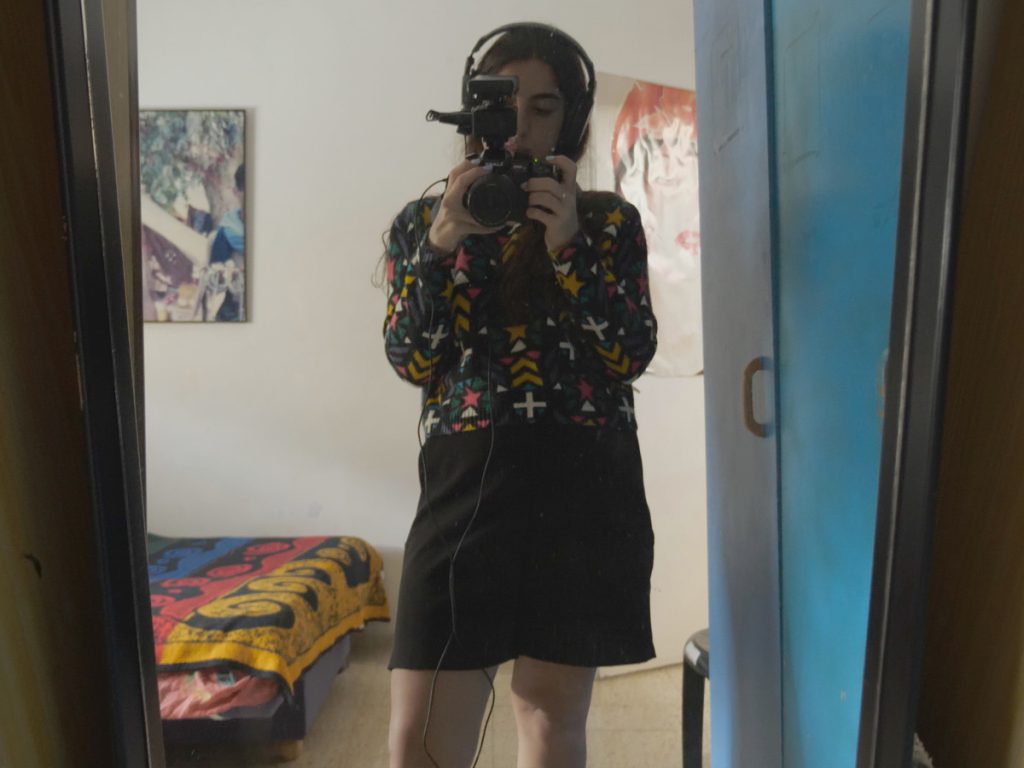
Can you share the most important lessons you learned through the process of making the film?
The most important lesson I learned was that I want my filmmaking to be made with little means but full of humanity. I think it’s possible with very little money to produce a film which will be touching, thought-provoking and reach viewers’ hearts.
If you could go back in time to pre-production and give yourself one piece of advice, what would it be?
I should have paid more attention to sound recording on set.
List the festival where your film has screened and any awards / recognition gained so far.
The film was screened at Cinema South Festival as a graduation film and won the Best documentary film award.
On JFF’s last edition, it participated in The Diamond Competition for Israeli Shorts and won The Aliza and Micha Shagrir Award for Best short documentary film.
It was also selected to Jerusalem Women’s Film Festival and The Documentary Forum Awards Competition, both postponed now.
In the shadow of war, its international premiere will take place in 42 FILMSCHOOLFEST MUNICH in Germany. Israelis urged to reconsider overseas travel amid rising antisemitism worldwide. I guess no other director participanting had to ask the festival organizers for the security arrangements and bear these thoughts of being personally attacked for reasons of origin. Yet I’ll be there.
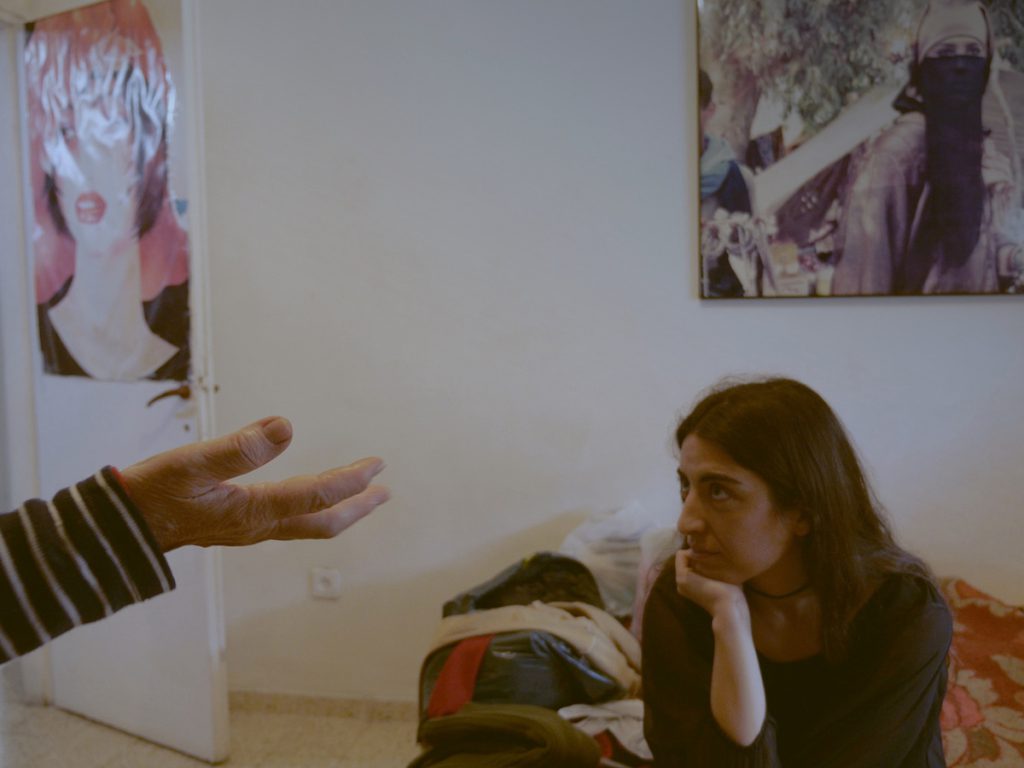
How does it feel for you, as an artist, to see your work being accepted to festivals and more?
It expands my heart and makes me feel I’m in the right place. The festivals and the awards that follow them drive the industry, promote it greatly and give a significant pat on the back and a push for the rest of the way. Those platforms are cardinal nowadays for filmmakers who put less interest in commercial success.
What are your expectations from T-Port? Has working with T-Port taught you anything about the industry?
I was glad to get acquainted with T-Port platform. It made me happy to see there’s a space for sharing this knowledge about new short films releasing and getting to know new filmmakers’ perspectives. I watched several films on T-Port already and it’s always a pleasure to discover new films.
What are your plans and dreams for the future?
I’m working on a feature-length documentary called “In Camera”, currently at the shooting stage, produced by Deux Beaux Garçons Films.
In my framing of the future, I see myself making films independently of public funding and broadcasters’ interest.
If you are a film industry professional and would like access to the catalogue and more, find out here how to sign up.
Filmmaker? Upload your short film to T-Port or sign up for our newsletter to get regular updates on the current trends and exciting innovations in the short film universe.
